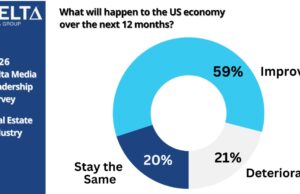Virgin Islands Water and Power Authority Signs Legal Agreement with EPA and U.S. Department of Justice to Reduce Air Pollution at Two Power Plants
WASHINGTON, D.C. – September 25, 2015 – (RealEstateRama) — Under an agreement announced today by the Department of Justice and the Environmental Protection Agency, the Virgin Islands Water and Power Authority (VIWAPA) will come into compliance with the federal Clean Air Act at its Krum Bay facility on St. Thomas and Cruz Bay facility on St. John, U.S. Virgin Islands. The settlement resolves numerous violations of the Clean Air Act, including VIWAPA’s failure to properly operate pollution control equipment to reduce emissions of nitrogen oxides and particulate matter that can cause serious respiratory illness. These pollutants are linked to health problems, including asthma, lung and heart disease. VIWAPA will spend approximately $12.2 million to comply with the agreement’s requirements. VIWAPA will also pay a $1.3 million penalty.
Separate from the settlement, VIWAPA has been in the process of converting several of its oil-fired turbines at the St. Thomas facility to be capable of burning liquefied petroleum gas or liquefied natural gas. The settlement requires that at least 85 percent of the power VIWAPA generates from the converted units be from burning liquefied petroleum gas or liquefied natural gas at the converted units and renewable sources. The agreement will result in a reduction of nitrogen oxide emissions by approximately 1,300 tons per year and particulate matter emissions by approximately 185 tons per year. In addition, the conversion to LPG or LNG will reduce the amount of carbon dioxide, a greenhouse gas, from the St. Thomas facility by approximately 66,000 tons per year and sulfur dioxide by approximately 200 tons per year.
“Today’s settlement marks another milestone in our ongoing efforts to enforce the Clean Air Act and reduce air pollution from power plants,” said Assistant Attorney General John C. Cruden for the Justice Department’s Environment and Natural Resources Division. “This settlement will eliminate thousands of tons of harmful air pollution each year, significantly improving air quality in the Virgin Islands.”
“This settlement will drastically reduce the amount of air pollution in the Virgin Islands and bring the St. Thomas power plant, one of the most significant sources of air pollution in the U.S. Virgin Islands, into compliance with the Clean Air Act,” said Regional Administrator Judith A. Enck for EPA.
Under the Clean Air Act, large industrial facilities that make modifications that increase air pollution emissions must install best available control technology. VIWAPA operates with a permit that requires it to use the best available control technology to control emissions of nitrogen oxides and particulate matter. The complaint, which this settlement resolves, alleged numerous violations, including that VIWAPA had not properly operated nor maintained its water injection pollution control system during various times from October 2005 through December 2013. The complaint also alleged that the St. Thomas facility failed to meet the opacity (smoke) emission limits during normal operations and failed to conduct continuous monitoring to ensure compliance with its limits, and to keep proper records.
Under the agreement, at the St. Thomas facility, VIWAPA will:
Properly operate and maintain the water injection pollution control system;
Properly operate and maintain the continuous monitoring equipment;
Develop and maintain an inventory of spare parts for the St. Thomas facility’s water injection pollution control system and emission monitoring equipment;
Arrange for third-party audits and self-audits to ensure compliance with the water injection pollution control system requirements and emission monitoring requirements;
Install a pollution control device to reduce visible emissions from one unit; and
Install a video camera system to monitor visible emissions from the stacks and conduct visible emission monitoring when visible emissions are observed.
Under the agreement, at the St. John facility, VIWAPA will:
Use cleanerfuel; and
Submit a request to the Virgin Islands government to modify the permit to designate the unit as an emergency unit.
The EPA has worked with VIWAPA over the past several years to address its violations and operations at the St. Thomas facility and the St. John facility. As a result of that work, VIWAPA has already repaired and replaced pollution controls and monitoring equipment at the St. Thomas facility. It replaced its data acquisition system and installed an improved water system, which it now uses in its water injection pollution control system.
For more information on this settlement or to read the proposed consent decree, go to: http://www.justice.gov/enrd/consent-decrees














